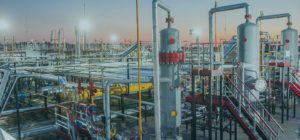
Ukraine in 2018 exported 341,442 tonnes of nitrogen mineral or chemical fertilizers (according to foreign economic activity code 3102) for $64.446 million and imported 1.358 million tonnes for $288.002 million.
According to the State Fiscal Service, nitrogen fertilizers were delivered to Turkey for $25.092 million, China for $10.3 million, to Romania for $7.584 million, and other countries for $21.47 million.
Last year, imports of nitrogen fertilizers were made from Belarus for $59.684 million, Uzbekistan for $46.235 million, Lithuania for $33.713 million, and other countries for $148.371 million.
Thus, exports of fertilizers last year halved, and in value terms fell by almost two times. Imports of fertilizers decreased by 22.1%, in value terms by 14.6%.
In addition, in 2018 Ukraine exported 40,209 tonnes of ammonia (code 2814) for $9.498 million, imported 441,607 tonnes for $137.333 million.
In 2018, ammonia was exported to Turkey ($4.54 million), Morocco ($2.414 million), Bulgaria ($1.921 million), other countries ($623,000). In 2018, ammonia was imported from the Russian Federation ($134.563 million), Belarus ($2.754 million), Germany ($14,000), and other countries ($2,000).

Grapes processing in Ukraine last year (excluding the temporarily occupied territory of Crimea and Sevastopol, part of the JFO area) increased by 1.2% compared with 2017, to 274,052 tonnes.
According to the State Statistics Service, out of the total amount of grapes processed for wine materials, 26.2% were actually harvested by enterprises, and the rest was purchased from households.
Odesa region last year processed 52.2% of grapes, Mykolaiv region some 35.8%, while Kherson 10.8% of the total volume.
Wine production in 2018 rose by 5.5% compared with 2017, to 19.75 million decaliters, of which 47% are table wine materials, 25.7% materials for champagne and sparkling wine, and 25.3% are wine materials for cognac.

The operating company responsible for the oil and gas sectors in the structure of the DTEK energy holding – DTEK Oil & Gas – has become the holder of 24.99% shares in private joint-stock company Kyivoblenergo earlier belonged to VS Energy International Ukraine LLC.
According to a report of Kyivoblenergo posted in the information disclosure system of the National Commission for Securities and the Stock Market, VS Energy now holds 33.60788% shares in the company.
As reported, early January 2019, DTEK announced its intention to build up 68.2949% of shares in JSC Odesaoblenergo and 93.9978% in JSC Kyivoblenergo owned by VS Energy Group.
DTEK was established in 2005 to manage the energy assets of Rinat Akhmetov’s System Capital Management Group (SCM, Donetsk). The corporation performs functions of strategic management of the group’s enterprises, which constitute a vertically integrated chain of coal production and washing, production and sale of electricity.
VS Energy International Ukrainе owns shares in the following companies: Kyivoblenergo, Rivneoblenergo, Khersonoblenergo, Kirovohradoblenergo, Zhytomyroblenergo, Odesaoblenergo, Chernivtsioblenergo, Sevastopolenergo. Also, the company owns large stakes in Mykolaivoblenergo and Khmelnytskoblenergo.
According to the unified public register of companies, the ultimate beneficiaries of VS Energy International Ukraine are citizen of Germany Marina Yaroslavskaya, as well as citizens of Latvia Vilis Dambins, Arturs Altbergs and Valts Vigants. Ukrainian media and politicians also named several Russian businessmen as beneficiaries of the company.